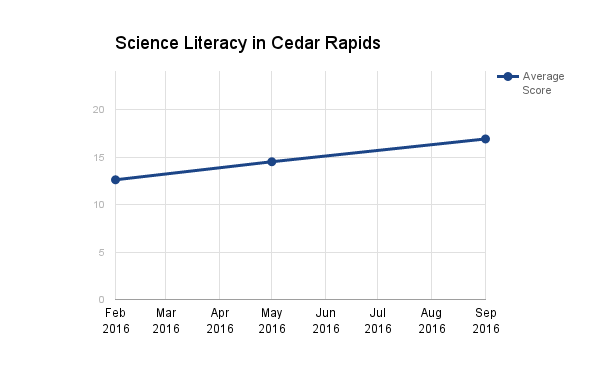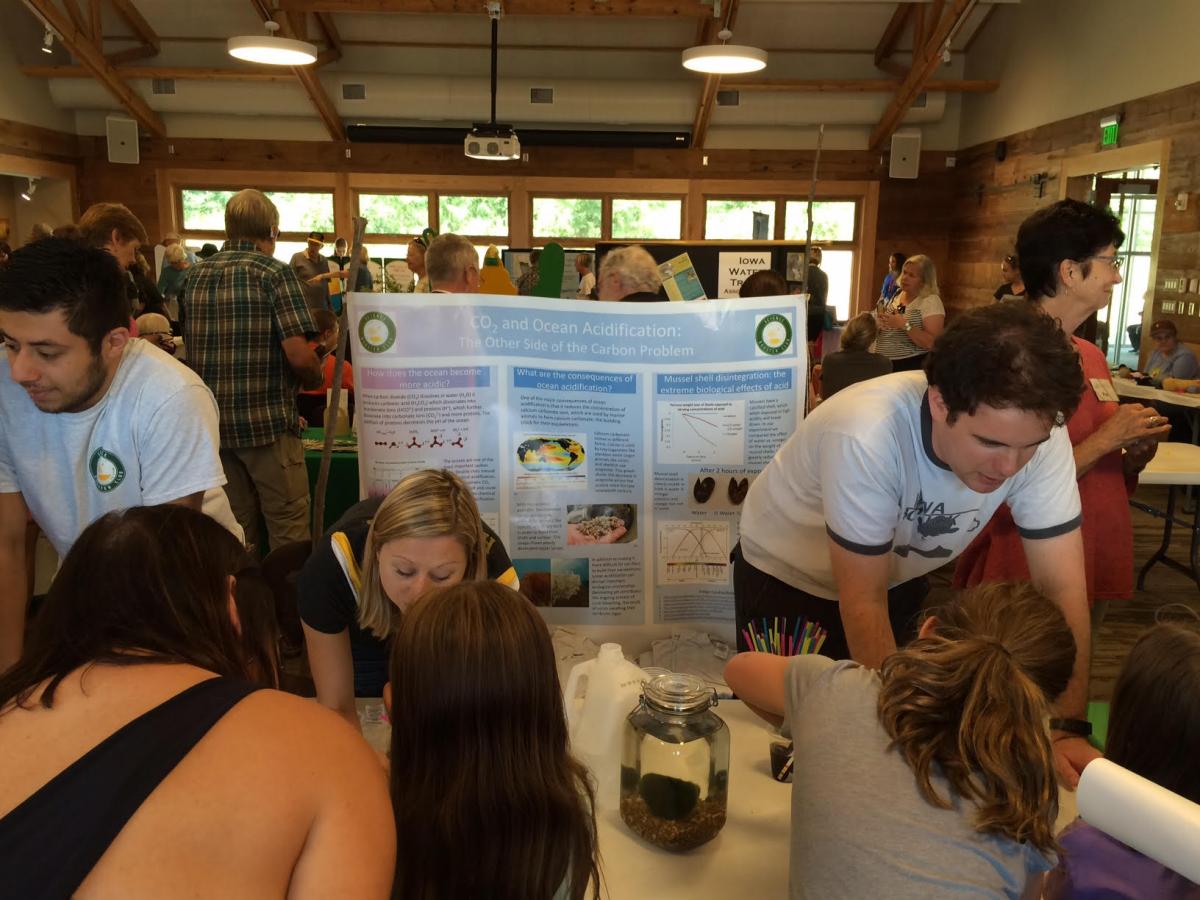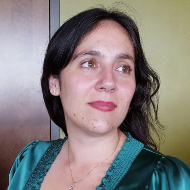For months now, we’ve been telling you about the fun events that NCSE's Science Booster Clubs have been bringing to farmers markets, Halloween haunts, and county fairs. The Booster Clubs have reached more than 50,000 people in the last 18 months. That’s a feel-good story, right? But do these efforts actually change anything? Could they possibly have any effect on the notoriously low level of science literacy among U.S. adults? The activities at our large-scale events are simple and quick. Our volunteers spend, on average, less than five minutes with each participant at fair-type events. Surely this type of programming can’t move the needle on a problem as stubborn as adult science literacy. Right?
Wrong. From the beginning, we’ve wanted the Booster Club program to be more than a good time. We’re looking for a way to affect societal attitudes towards and knowledge of science. At many of our events we’ve surveyed participants and bystanders. The early numbers are in and guess what? Our programs are working.
Check out the graph below:

The graph shows the results of our survey work in Cedar Rapids, Iowa. Since the beginning of 2016, we’ve been using a survey at some of our larger events to measure science literacy on a 24-point scale. The survey asks questions like “Does the Earth go around the Sun, or does the Sun go around the Earth?” and “Is all radioactivity manmade, or does some occur naturally?”
You might think these questions are silly, but they were previously validated by a Pew survey on American scientific literacy. Check out national results for the question on radioactivity here. You won't like the numbers. And it may surprise you to learn that just over 25% of Americans are pretty sure the sun does in fact go around the Earth.
The latter number is similar to what our surveys found. I'm flabbergasted that there’s a need for me to develop an exhibit about heliocentrism in 2016. But I need to get past that reaction. After all, where am I finding these geocentrists? At public science events, where they’re trying to learn about science. And they’re nice people. They’re polite and engaging. They’re interested in enrichment activities for their children. Learning new things visibly delights them. They’re people just like me. But no one is teaching them about this newfangled Copernican theory. I better get to work.
reaction. After all, where am I finding these geocentrists? At public science events, where they’re trying to learn about science. And they’re nice people. They’re polite and engaging. They’re interested in enrichment activities for their children. Learning new things visibly delights them. They’re people just like me. But no one is teaching them about this newfangled Copernican theory. I better get to work.
So far, what we’re doing is working. Scores in Cedar Rapids have risen from 13 to 17 in just seven months (that’s about 30% for those of you keeping score at home). And the difference is statistically significant (at p=0.03, for those of you craving the details). We’re starting to see similar upward trends in the other communities where we work. I’ll be able to show you more data soon! But even these early results are very exciting.
Adult science literacy is a tough nut to crack. People have been tracking public answers to some of these questions for almost fifty years, when the NSF started investing in national survey work. While we’ve seen improvements in some areas, like the public understanding of probability and DNA, our national understanding of concepts related to evolution and geologic time have not improved. Check out this lovely figure in Jon Miller’s work, which includes the fascinating and terrifying tidbit that in the 1970s, fully half of Americans embraced geocentrism.
We are constantly learning more about our world through the application of the scientific method. Our understanding of climate change today is vastly different from what we knew even ten years go. But where can people access this knowledge? Most adults don’t get many science learning opportunities in their daily lives. The awesome hands-on programming of the Science Booster Clubs provides more of these chances, and, clearly, they're having an impact.
If you check out that Smithsonian link to the Pew Survey, you’ll note that Americans aren’t happy about their lack of science literacy. They’re eager to learn and they’re passionate about improving science education. The message take from these results? We really can make a difference in our communities. Adult scientific literacy isn’t impossible to expand, and it doesn’t cost millions of dollars. But it does take respect, and a sense of fun. We’ll keep bringing both to the table with the Science Booster Club project.

